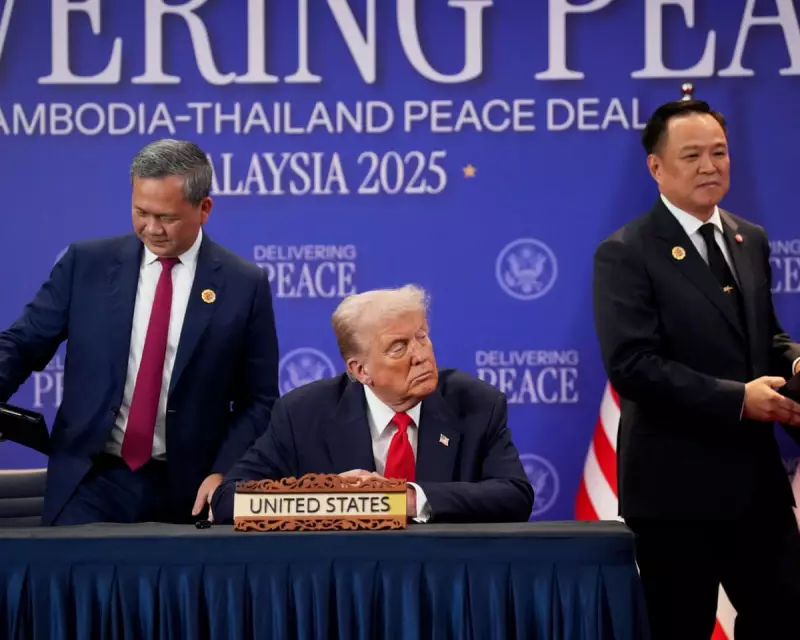
The United States has taken decisive action against Thailand, suspending crucial trade talks in an effort to pressure the nation into recommitting to a fragile ceasefire with Cambodia. This dramatic move aims to prevent the complete collapse of a truce agreement originally brokered by former President Donald Trump.
Trade Leverage in Diplomatic Crisis
This diplomatic crisis escalated when Thailand announced it was suspending the ceasefire deal, accusing Cambodian forces of laying fresh landmines along their shared border. Bangkok claims one of these devices wounded a Thai soldier on patrol, who tragically lost a foot in the explosion.
The US response was swift and unambiguous. On Friday night, the Thai foreign ministry received a letter from the Office of the US Trade Representative formally announcing the suspension of trade deal negotiations. A ministry spokesperson, Nikorndej Balankura, stated the letter made it clear that talks could only resume once Thailand reaffirmed its commitment to the joint ceasefire declaration.
Conflicting Accounts and Presidential Intervention
However, the situation was clouded by conflicting reports from the Thai government. Another spokesperson, Siripong Angkasakulkiat, later asserted that the temporary suspension of trade talks had occurred before a late Friday phone call between Thai Prime Minister Anutin Charnvirakul and Donald Trump. Siripong insisted that "tariff negotiations will continue and remain separate from border issues."
Meanwhile, Donald Trump himself addressed the situation, boasting of using economic pressure as a diplomatic tool. While flying to Florida on Air Force One, the former president told reporters, "I stopped a war just today through the use of tariffs, the threat of tariffs." He expressed optimism about the outcome, adding, "they're doing great. I think they're gonna be fine."
A Troubled Border and a Nobel Ambition
The stakes in this dispute are high. Since Thailand's suspension of the ceasefire, one person has been killed and several others wounded by gunfire along the Thai-Cambodia frontier, raising fears of a return to full-scale tit-for-tat fighting.
This is not the first time violence has flared. The worst fighting in a decade erupted between Thai and Cambodian troops this past July, involving gunfire, artillery, and airstrikes that left dozens dead and 300,000 people displaced.
The core of the conflict is a longstanding border dispute dating back to disagreements over colonial-era maps drawn by the French. Both nations lay claim to ancient temples situated along the contested border. Trump previously oversaw the signing of a ceasefire agreement in Malaysia this October and has touted it as an achievement worthy of a Nobel Peace Prize.
With the US now wielding its economic influence, the international community watches to see if this pressure can force a de-escalation and bring the two Southeast Asian neighbours back from the brink.





